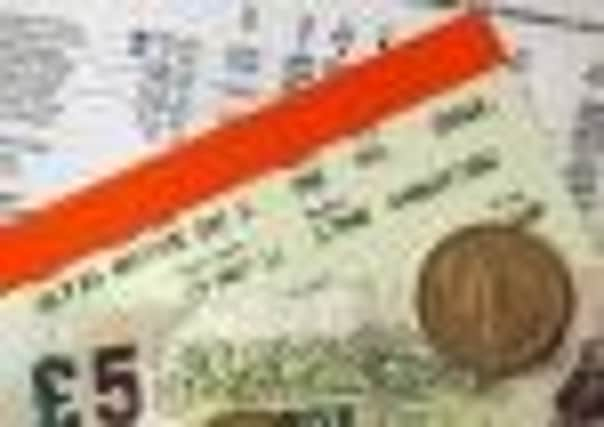Commuters could face ‘fines’ for using trains during rush-hour


While some travellers could be rewarded for avoiding the peak times, others could pay more in order to “smooth demand” at the busiest times
But the “high-peak” fare would have to be considered “very carefully”, according to the wording of a rail consultation paper on fares and ticketing published today.
Advertisement
Hide AdAdvertisement
Hide AdThe consultation also suggested possible changes that rail customer watchdog Passenger Focus said could lead to travellers not being able to buy turn-up-and-go tickets.


The consultation was part of a rail command paper on rail reform published today by Transport Secretary Justine Greening in response to a Whitehall-commissioned rail report on cost-cutting by Sir Roy McNulty.
Labour, transport unions and passenger groups immediately expressed concern at any possible fare rises and also at proposals that could see hundreds of ticket offices closed.
“Let’s try to tempt passengers away from peak-time travel, rather than penalise them for doing so,” said Passenger Focus chief executive Anthony Smith.
Advertisement
Hide AdAdvertisement
Hide AdMs Greening outlined billions of pounds worth of savings that would be made over the next few years so that above-inflation fare rises for season ticket holders would be ended.
She said smart ticketing technology, so that passengers across England and Wales could enjoy Oyster-style tickets, would be rolled out.
The consultation paper also explores the possibility of cheaper season tickets for those who do not work a full five-day week,
But just how, and when, changes to fares and the way they are bought will pan out will not be known until the end of the consultation on fares and ticketing.
Advertisement
Hide AdAdvertisement
Hide AdMs Greening said today: “Inefficiency and waste in the railways is costing hard-pressed farepayers and taxpayers £3.5 billion-a-year and I will no longer allow them to be lumbered with this unnecessary burden.
“We are setting out a roadmap for action alongside the industry to root out inefficiency so we can deliver real value-for-money that ends inflation-busting fare rises once and for all.”
She went on: “Our Command Paper also safeguards community services, commits to continued investment in rail infrastructure and rolling stock, and empowers passengers through better ticketing systems and real-time information.
“It is about building a more efficient and affordable rail network that serves its passengers better, encourages the rail industry to thrive and grow, and ultimately reinvigorates and sustains Britain’s economy.”
Advertisement
Hide AdAdvertisement
Hide AdShadow transport secretary Maria Eagle MP said Ms Greening has failed to “stand up to bested interests on behalf of passengers”.
Ms Eagle welcomed the smart ticketing but said she feared a “super peak” fare would be introduced rather than any cuts to ticket prices.
Mr Smith said significant price hikes “might force many into an unpleasant choice: pay up or change job, if you can”. He added that any measures that took staff away from stations were “short-sighted”.
Bob Crow, leader of transport union the RMT, said the rail plan was a “recipe for exploitation with the train operators given the green light to rob passengers blind”.
Advertisement
Hide AdAdvertisement
Hide AdHe said he feared 12,000 jobs were at risk and threatened possible strike action.
Manuel Cortes, leader of transport union TSSA, said ministers were “putting the interests of the private train companies ahead of millions of passengers” and that the Government was “green-lighting higher super-peak fares”.
Rail industry bodies the Association of Train Operating Companies, Network Rail and the Office of Rail Regulation (ORR) all welcomed the command paper, with the ORR saying it was essential that railway “delivered for customers on cost, safety and performance.
The CBI said the Government had set out “much-needed clarity and direction for the future of our railways”, but the TUC expressed concern at the possible fare rises and possible cuts to ticketing and station staff.